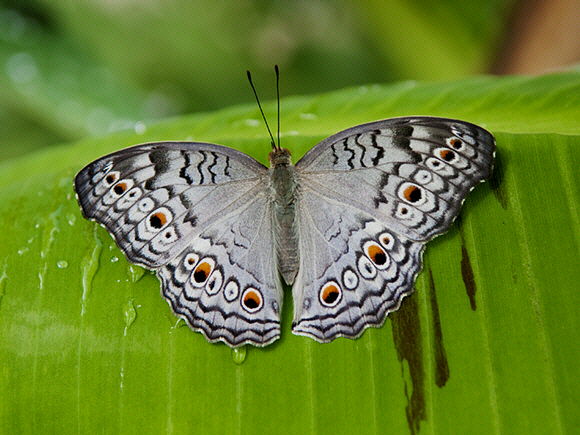
Introduction
There is a great deal of confusion among entomologists regarding the genera Junonia and Precis. The two genera are very similar, but the genitalia differ consistently, as do the larval foodplants, which are chiefly Lamiaceae in the solely African genus Precis, and Acanthaceae in Junonia, which are more widely distributed, and includes the Pansy butterflies of Africa, the Buckeyes of Central America and the USA, and the Soldiers and Commodores of the Oriental and Australian regions.
Using the above definitions, Junonia comprises about 33 species, of which 11 occur in the Oriental region. Of these, 6 are found on the Indian subcontinent: iphita, atlites, orithya, hierta, almana and lemonias.
Junonia atlites is found in India, Nepal, Thailand, West Malaysia, Sumatra, Borneo and Sulawesi.
Habitats
This species is found in disturbed areas including forest clearings, riverbanks, roadsides and the margins of agricultural land, at elevations between sea level and about 1000m.
Lifecycle
The eggs are pale green with vertical ribs. They are laid singly either on the foodplant or on nearby plant material. The larvae feed on a wide range of plants including Lepidagathis, Justicia, Barleria, Goldfussia, Hygrophila, Strobilanthes, Hygrophila, Blechum, Lepidagathis, Asteracantha, Nelsonia (Acanthaceae), Achyranthes, Alternanthera (Amaranthaceae), and Lindernia (Linderniaceae). The chrysalis is brown with tubercles along the back and sides.
Adult behaviour
Both sexes are low flying and spend long periods basking on herbage or on the ground.
